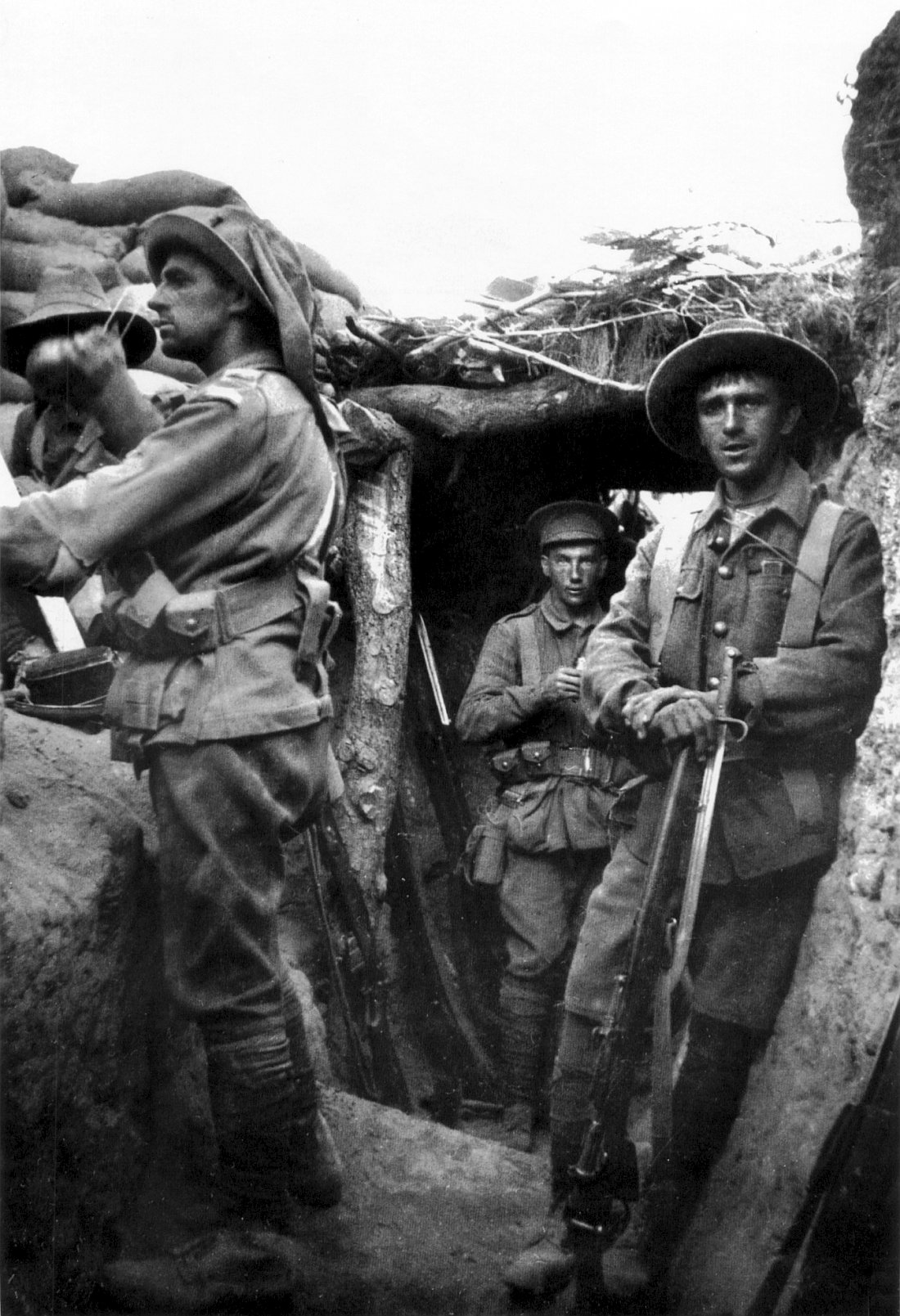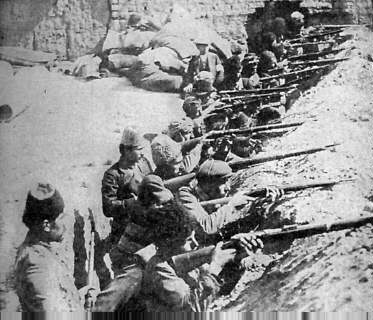A Leadership Change in London; Churchill’s Fall from Grace.
At Gallipoli A Truce to Bury the Dead
Special to The Great War Project
(21-24 May) Stalemate and suffering for the British and their allies on two fronts: the Western Front in Belgium and the Turkish front at Gallipoli and the Dardanelles waterway.
The war in Gallipoli a century ago turns out to be much more difficult than its British advocates expect.
On just one day, May 19th, on the Gallipoli peninsula, at the Allies northern landing zone, “a massive assault by 40,000 Turks was beaten back by the 17,000 Australian and New Zealand troops then ashore,” writes historian Martin Gilbert.
It is not how the British leaders expected it to go, reports Gilbert. “What had been envisaged less than a month earlier as a continually forward movement until the peninsula was overrun had become…
…a defensive struggle to retain two tiny footholds in inhospitable terrain.”
Events on the battlefield force a change in leadership in London. Among those relieved of their positions is Winston Churchill. As First Lord of the Admiralty, Churchill is most identified with the failure of the ill-fated naval assault on the Dardanelles waterway in March. And then with the great blood-letting on the Gallipoli peninsula.
Three days later, the first German submarine reaches the Dardanelles after leaving port far to the north in the Baltic Sea. Designated U-21, it promptly torpedoes the British battleship Triumph. More than a hundred sailors drown.
According to one German naval officer’s account, “The sinking of the Triumph was so tremendous a sight that for the moment warfare was forgotten on shore. The soldiers in both lines of the trenches on the Gallipoli hills stood up in plain sight of each other, forgetting everything in their intense excitement.”
“They watched fascinated,” reports the officer, “until the Triumph had taken her last plunge, then jumped back into the trenches and began shooting at each other again.”
The naval battle continues the following day on May 23rd when the same submarine claims its second victim, the British battleship Majestic. These losses, reports Gilbert, “caused grave alarm among the Allies at the Dardanelles.”
“The six other battleships whose 14- and 15-inch guns had been pounding the Turkish trenches from the hitherto safe waters off the peninsula withdrew at once to the security of distant harbors.”
It was a triumph for the Turks, according to the official British naval historian. “Hundreds of thousands of Turkish troops,” he writes, “depressed by loss and failure, and demoralized by the heavy shell fire from the sea, had seen the stampede of the ships they most dreaded.
“Thousands of our own men had seen the loss of the ships as well, and they knew there was nothing now but the cruisers and destroyers to support them in their daily struggle in the trenches.”
There is rejoicing among the Germans and their Turkish allies. But it is short-lived. A British submarine in the area takes out two Turkish ships, one a torpedo gunboat, the second a Turkish troopship.
“On the peninsula itself,” writes historian Gilbert, “the continuing slaughter was such that on May 24th the Australian and New Zealand forces agreed to a ten-hour truce, to enable the Turks to bury 3,000 of their dead.”
On the Western Front during these days, fighting continues without pause. So does the use of poison gas. On May 24th, the German use of gas shells near the Belgian town of Ypres breaks a four-and-a-half mile hole in the British lines. But the Germans fail to take advantage of it.
“The scene,” writes war historian, John Keegan, “must have been as near to hell as this earth can show.”
The stalemate continues until the Second Battle of Ypres comes to an end the following day.
The British gain a mere one-thousand yards. For this they suffer 16,000 casualties; the Germans 5,000.
One other important development: On May 23rd a century ago, Italy joins the Allied nations and declares war on Austria-Hungary.
But not on Germany, for the moment.




Churchil was released several months before the Gallipoli campaign. When Serbia was still on the war the Germans could not resupply the Turks. Churchill wanted to force the Dardanelles with useless pre-Drednaught battleships. The move would have taken Turkey out of the war. Once Serbia fell Churchill was against the Galopoli adventure because the Turks now had an inexhaustible supply of munitions.